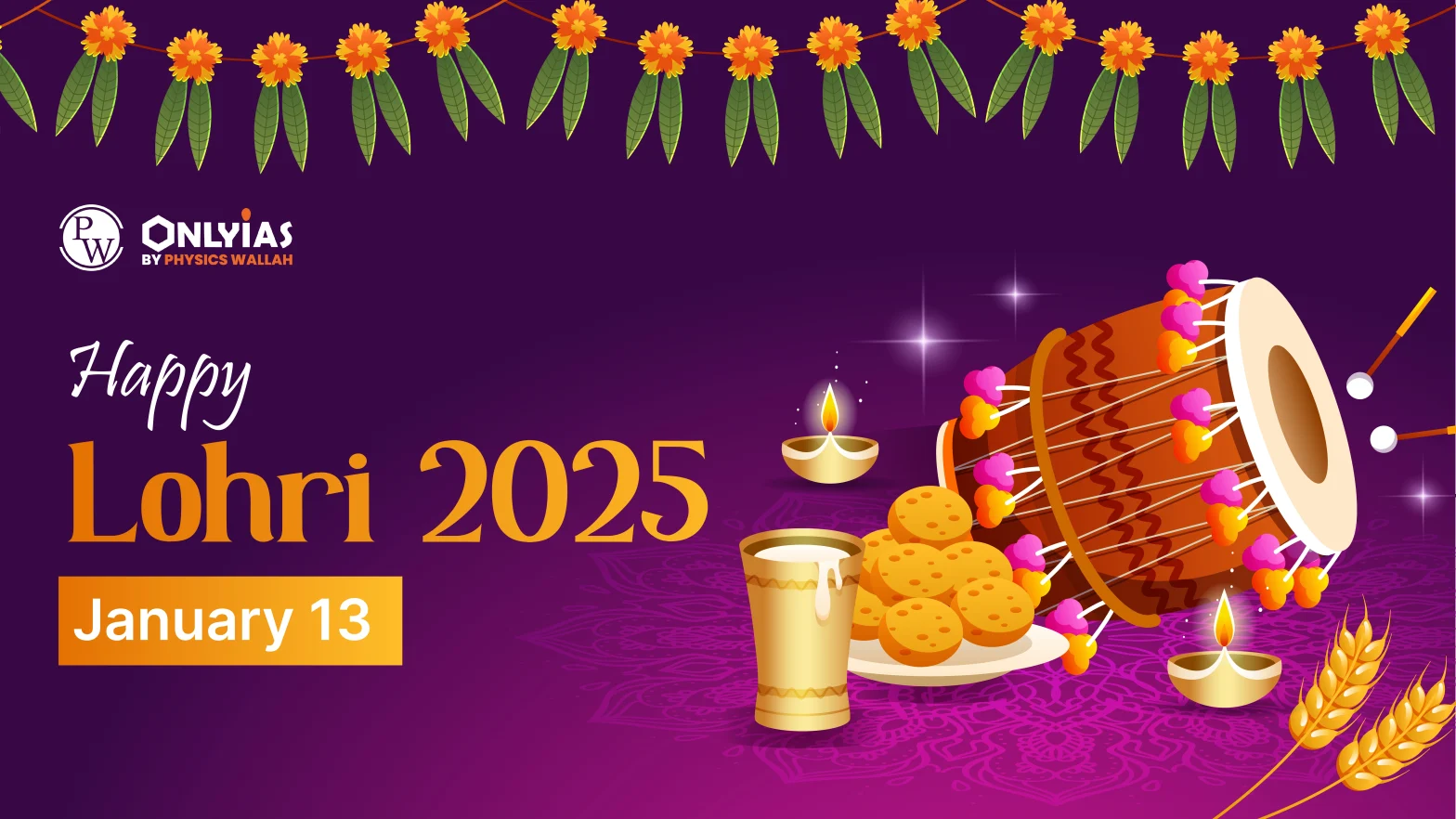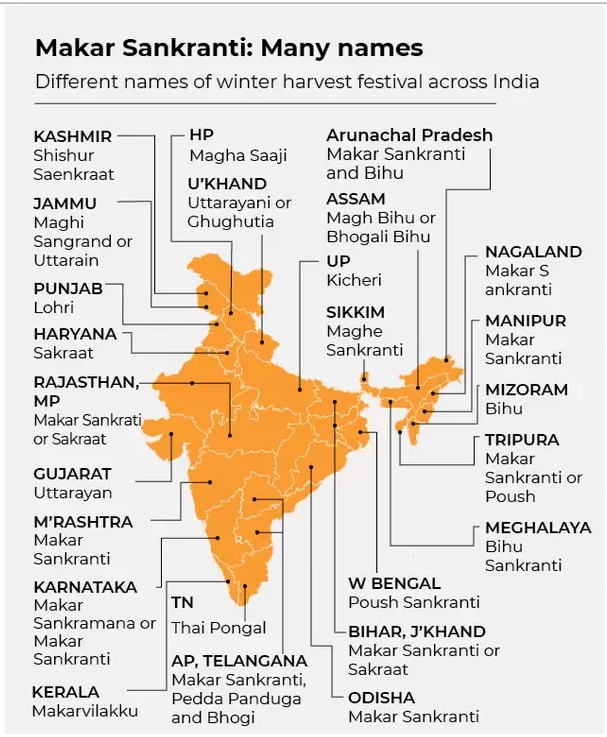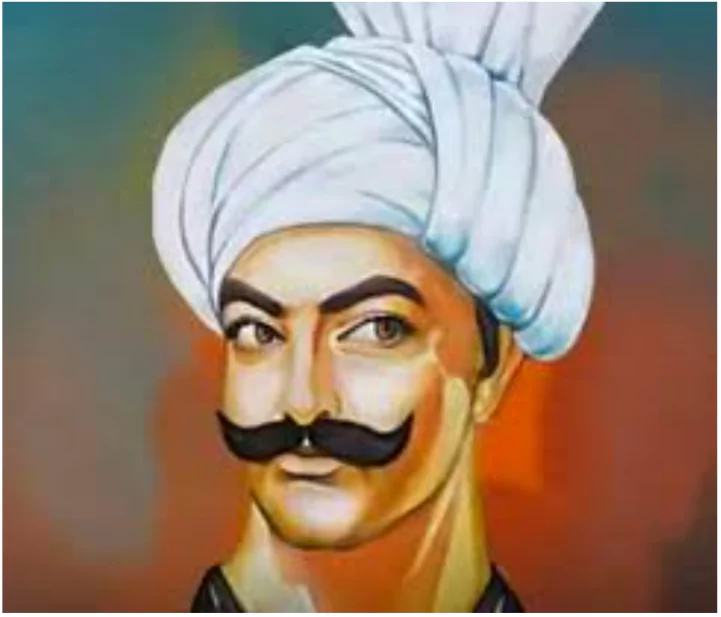Lohri 2025 is celebrated on January 13, to make the beginning of the harvest season. Learn more about Lohri 2025 date and its significance here.

Lohri 2025: Lohri, a vibrant and joyous festival marking the end of winter and the beginning of the harvest season, is celebrated on January 13, 2025. Known for its bonfires, traditional songs, and delectable feasts, Lohri is deeply rooted in Indian agricultural traditions and cultural heritage.
Lohri is primarily a harvest festival celebrated in North India, particularly in Punjab and Haryana. It signifies the harvesting of rabi crops and the onset of longer days after the winter solstice. The festival is a communal celebration marked by singing and dancing around a bonfire, symbolizing warmth and hope.
It is a popular Indian festival celebrated largely among Sikhs and Hindus. The word ‘Lohri’ has been derived from ‘Loh’ which means a thick iron sheet or tandoor used for warmth and cooking.
Key Highlights:
As per Drik Panchang, this year, it will be celebrated on Monday i.e. on 13 January 2025 and Makar Sankranti will be celebrated on 14 January 2025.


Dulla Bhatti is a legendary Punjabi folk hero often called the “Robin Hood of Punjab”. His story is closely tied to Lohri celebrations, where folk songs narrate his bravery and acts of kindness.
It is believed that during Mughal Emperor Akbar’s reign, there was a legend called Dula Bhatti.
Lohri is celebrated as a thanksgiving festival to honor Surya Devta (Sun God) and Agni Devta (Fire God) for blessing the farmers with a bountiful harvest. It also marks the passing of the winter solstice and the arrival of warmer days. Here is why the Lohri festival is celebrated:
Lohri is dedicated to the Sun God (Surya Devta), Fire God (Agni Devta), and nature’s fertility. The rituals involve offering sesame seeds, jaggery, and sugarcane to the fire, symbolizing gratitude and seeking blessings for a fruitful harvest.
Offerings and Rituals Include:
Festival is celebrated across India, especially in the North Indian states, such as Himachal Pradesh, Jammu and Haryana.
Geographical Importance: It marks the end of the Winter Solstice and the beginning of harvest season in the country.
Although it is primarily celebrated in Punjab and Haryana, Lohri is also observed in other parts of North India with varying traditions.
States Where Lohri is Prominent:
To Read More About India’s Harvest Festivals, Click Here
Here’s how Lohri bridge Traditions in Sikh and Hindu Celebrations:
Bikrami Calendar: An Ancient Hindu Timekeeping Tradition Embraced by Sikhs
|
The main winter crop of Punjab, wheat, is sown in October and is seen at its prime in January across the fields of the Indian state.
Lohri’s rich traditions, agricultural symbolism, and cultural unity underscore the importance of preserving and celebrating diverse heritage. Embracing shared festivities can enhance community bonds, fostering understanding and harmony.
Ready to boost your UPSC 2025 preparation? Join PW’s UPSC online courses today!
Lohri marks the end of winter and the beginning of the harvest season. It is celebrated as a thanksgiving festival to honor the Sun God (Surya Devta) and Fire God (Agni Devta) for a bountiful harvest.
Lohri will be celebrated on January 13, 2025, followed by Makar Sankranti on January 14, 2025.
Dulla Bhatti, known as the "Robin Hood of Punjab," is a legendary folk hero celebrated for his bravery and acts of kindness. Folk songs praising him, like Sunder Mundriye, are traditionally sung during Lohri celebrations.
Lohri is predominantly celebrated in Punjab and Haryana but is also observed in Delhi, Himachal Pradesh, and Jammu and Kashmir with regional variations.
Key rituals include lighting a bonfire and offering sesame seeds, jaggery, and sugarcane to the fire. These symbolize unity, sweetness, and gratitude for a fruitful harvest.

<div class="new-fform">
</div>